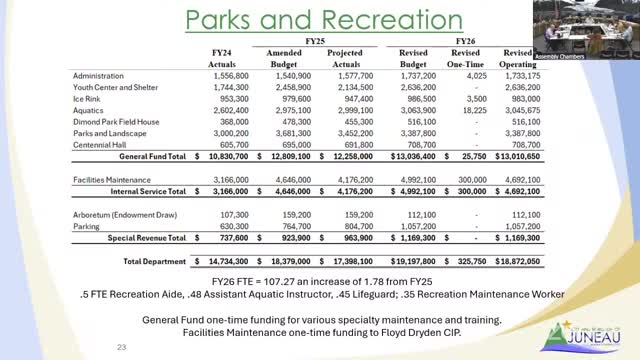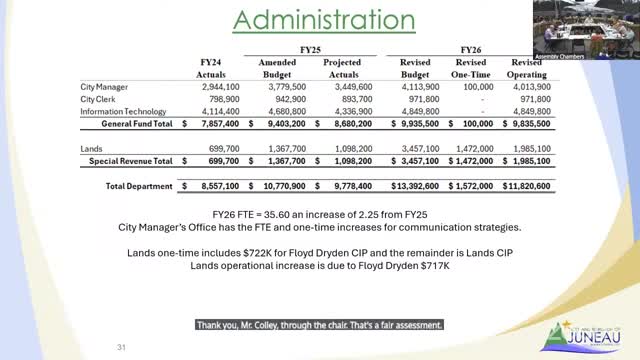Article not found
This article is no longer available. But don't worry—we've gathered other articles that discuss the same topic.

Juneau School District presents FY26 operating budget; consolidation hold‑harmless cushions transition

Docks and Harbors, passenger‑fee plan reviewed; Assembly asked to weigh new $7 per‑passenger fee

Eagle Crest board asks Assembly for staff and capital funding as resort seeks path to year‑round operations

Bartlett reports improved margins, warns of $4–5M Medicaid risk and plans to repay city aid

Manager seeks new communications division — 4 positions and $250,000 request

